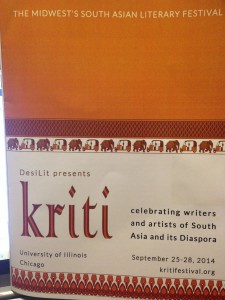The (Great) Indian Poetry Collective Indiegogo Campaign
The (Great) Indian Poetry Collective is the brain child of Shikha Malaviya, Minal Hajratwala, and Ellen Kombiyil, three poets who met in Bangalore, India, in 2013, and decided to found a mentorship model collective literary press. The Collective aims to publish new & emerging Indian poets, on the basis of manuscript merit, mentor them through the publishing process from A to Z, and then train them to eventually become mentors themselves. In addition to publishing books, The Collective also gives poetry workshops, organizes readings, develops poetry curriculums rooted in Indian poetic traditions & much more. They’re all about widening the dialogue on Indian poetry and bringing it out into the open.
So far the collective has published two titles, Geography of Tongues (December 2013/January 2014) & Bountiful Instructions for Enlightenment (November 2014). They hope to publish three more books in the coming year & will be releasing inPoetry, a poetry app which will bring Indian poems in English to readers through their mobile phones, as well as designing an online poetry workshop.
In order to realize their goals, The (Great) Indian Poetry Collective is now running an Indiegogo campaign. While India has influenced the world in music, film, fashion, philosophy, and countless other ways, her poets have not yet had the international platform they deserve. The Collective hopes to remedy this oversight and, through the power of social entrepreneurship and community, allow the verse of Indian poets to shine everywhere. Please consider being a patron of poetry & donating.




